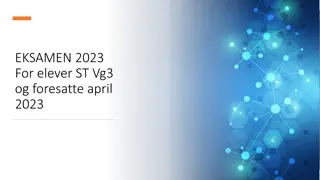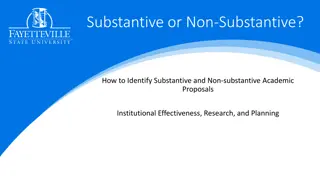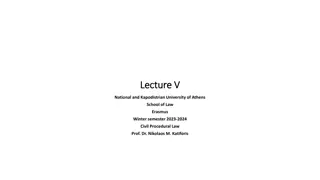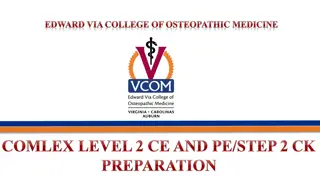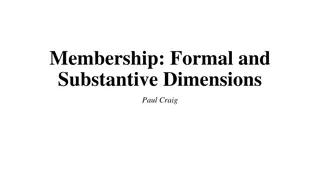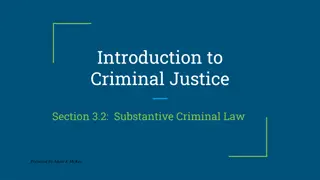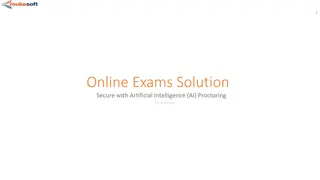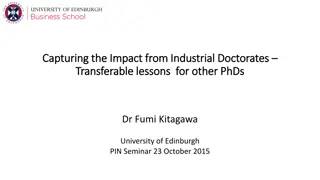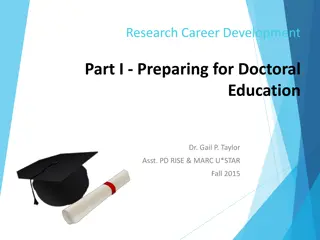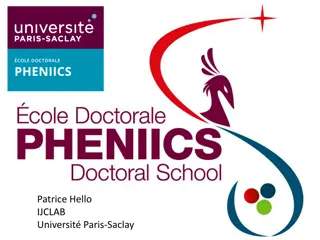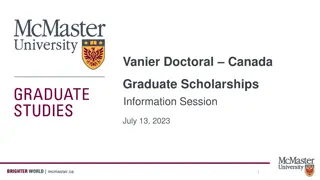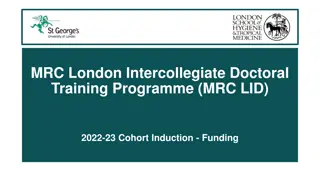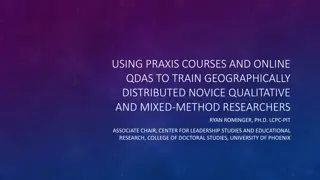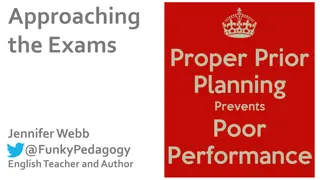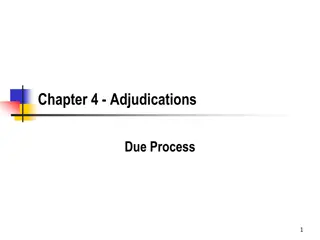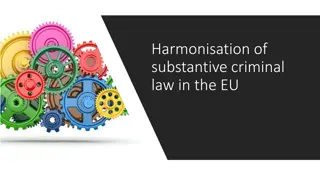Doctoral Methods and Substantive Exams Overview
Doctoral students will take two exams, Methods on May 18 and Substantive on May 19. Methods exam has 3 questions focusing on Causal Inference, Study Design, Data Analysis, graded out of 6. Substantive exam covers 12 areas of interest with 2 questions each, except for Epi Methods. Passing grade is 7 or higher per question. Grading is done by lead writers and reviewed by a committee. Final results are determined during a June faculty meeting.
Download Presentation

Please find below an Image/Link to download the presentation.
The content on the website is provided AS IS for your information and personal use only. It may not be sold, licensed, or shared on other websites without obtaining consent from the author.If you encounter any issues during the download, it is possible that the publisher has removed the file from their server.
You are allowed to download the files provided on this website for personal or commercial use, subject to the condition that they are used lawfully. All files are the property of their respective owners.
The content on the website is provided AS IS for your information and personal use only. It may not be sold, licensed, or shared on other websites without obtaining consent from the author.
E N D
Presentation Transcript
EpiWritten Exam Methods May 18, 8:30am-12:30pm Substantive May 19, 8:30am-12:30pm Kresge G2
Methods Exam 3 questions each with 2 main sections All questions must be answered Each section will be graded for a total of 6 scores Questions cover three broad areas Causal Inference, Study Design, Data Analysis Each question will have a main focus on one area but will include elements of the other areas. All questions will be cross-cutting. Each question has 2 lead writers They consult with other faculty and question writers to ensure minimal overlap between questions and assure the entire exam represents a broad test of methodological qualification to proceed in the doctoral program
Substantive Exam Questions written by faculty within the substantive area Collaborative effort by faculty in that area as well as the Substantive Exam Committee (Deborah Blacker, Ed Giovannucci, Lorelei Mucci, Miguel Hernan, Albert Hofman) Question writers will not be identified on the exam Questions based on broader themes within the area Involve the application of methods to the topic Passing will not hinge on rote memorization or knowledge of one specific fact Topics based on the 12 Areas of Interest 1. Cancer Epi/Cancer Prevention 2. Cardio Epi 3. Clinical Epi 4. Enviro/OccupEpi 5. Epi of Aging 6. Epi Methods 7. Infectious Disease Epi 8. Molecular/Genetic Epi 9. NeuroPsych Epi 10. Nutritional Epi 11. Pharmacoepi 12. Repro/Perinatal/Pediatric Epi Each area will provide 2 questions except Epi Methods which will only provide 1.
Overall Grading/Results Scale of 1-10 with 10 being the best 7 or higher on an individual question is considered a pass Final results (pass/fail) represent consensus of the faculty determined during the June faculty meeting A student s transcripts may be considered as part of determining the final result Grading and determination of final results is blinded Results are communicated to students via email and hard copy on the afternoon of the June faculty meeting
Methods Grading Lead writers grade their questions 2 scores below 7 = fail barring discussion 1 score below 7 and the average of the other scores below 7 = fail barring discussion As a committee they review all grades and present results at the faculty meeting for discussion and final decisions
Substantive Grading 2 scores below a 7 = fail barring discussion 1 score below 7 and the average of the others scores below 7 = fail barring discussion Area faculty who participated in writing/reviewing questions will grade the questions Grades are presented at the faculty meeting for discussion and final decisions
Eligibility for non-EpiStudents Non-Epi doctoral students may take the exam upon requesting to do so via email Passing will not mean an automatic admission into the Epi Dept. The internal application process must be completed and those applications will be reviewed in January along with other applicants
Eligibility to Retake the Exam A student who fails either or both parts of the exam must meet with his/her advisor and the Chair to discuss retaking the exam Typically a single retake is allowed A student who fails one part of the exam, Methods for example, and passes the Substantive part must only retake the Methods exam It is strongly advised that a student retaking the exam develop a customized mentoring plan with his/her advisor that includes regular meetings Students with poor academic records, or evidence that passing is unlikely on the second trial, will be strongly discouraged from proceeding




